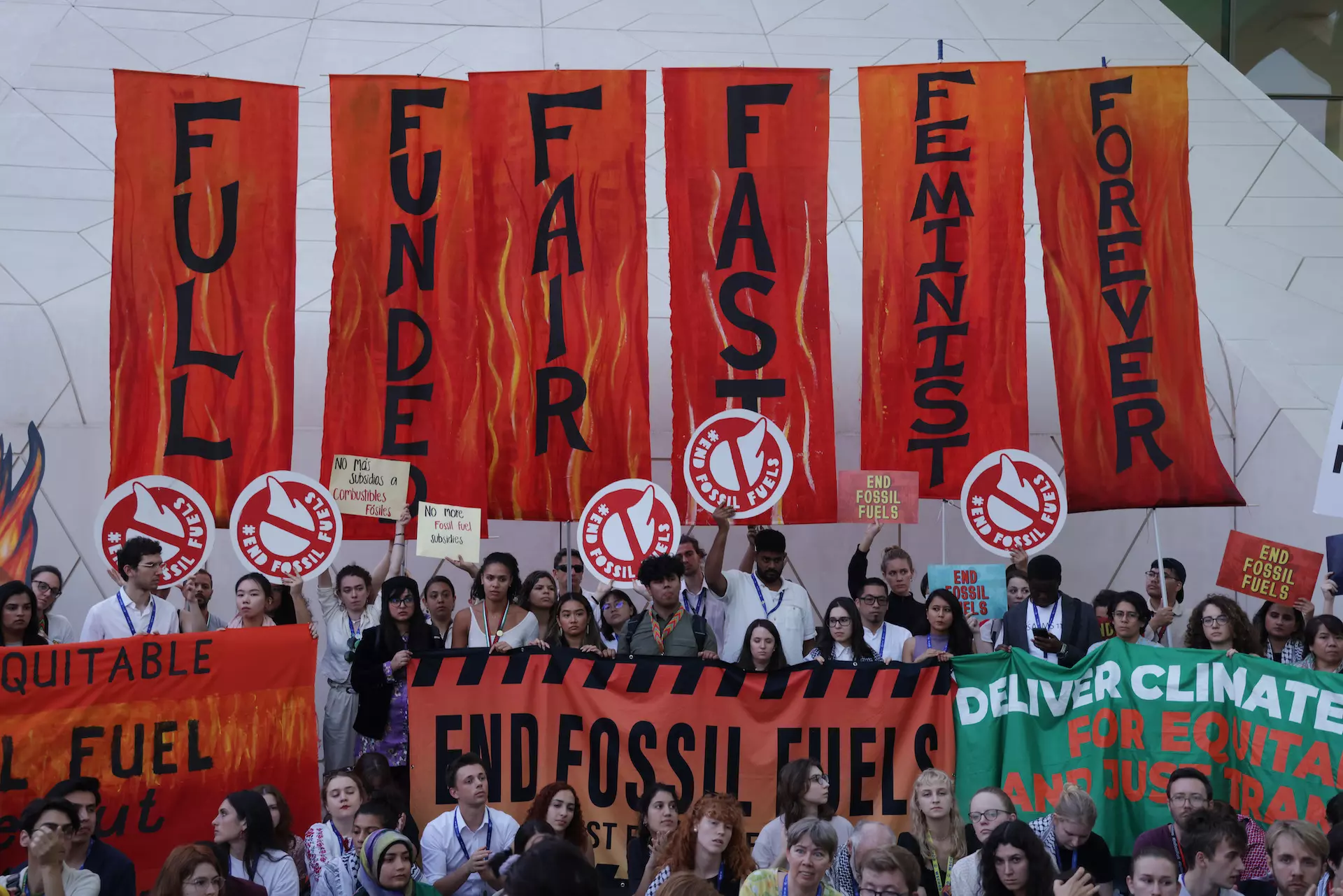https://www.lifegate.it/opec-cop28-fossili
- |
On December 6, 2023, while the Cop28 reached its turning point, the energy ministers of several Arab OPEC countries had already decided to reject any final agreement that aimed directly at the gradual elimination of fossil fuels.
In fact, during the 12th Arab Energy Conference, which was held in Doha, capital of Qatar, the Secretary General of OPEC, Haitham Al Ghais, urged OPEC members to reject any solution discussed at the Dubai COP that would include the phase out.
Al Ghais, who recently he lashed out the invitation of the International Energy Agency (IEA) to eliminate fossil fuels, put its warning in black and white, in a letter that was consulted by the news agency Reuters.

OPEC had already decided before the COP
The OPEC countries, the main oil producing cartel (of which 13 states are part) hold approximately 80 percent of the world's oil reserves, most of which are concentrated among members of the Middle East.For the majority of these countries, oil revenues represent the main source of income.It is therefore not surprising that any message coming from Cop28 and aimed at reducing the demand for oil and gas turns - for these countries - into an alarm bell.
The United Arab Emirates, the second Arab country to host the climate summit after Egypt in 2022 and a member of OPEC, together with other Gulf energy producers, has called for an energy transition that considers the role of fossil fuels “more realistically”. in guaranteeing energy supply while industries are engaged in the decarbonisation phase.
Sultan Al Jaber, head of the state oil company of the United Arab Emirates, Adnoc, and president of Cop28, declared on the one hand that a Gradual reduction of fossil fuels is inevitable, but on the other hand, according to the first circulating drafts of the final document, the global stocktake, it seems unlikely that we will talk about a "phase out".
Focus on reducing emissions, not reducing fuel
So it happens that while 80 countries, including the United States, the European Union, and several political representatives of the countries most vulnerable to global warming - especially those of the Pacific islands which risk disappearing due to rising sea levels - insist that Cop28 ends with the commitment to give up fossil fuels, they meet at the Doha summit the ministers of Iraq, Kuwait, Algeria, Libya and also Oman, which is not a member of OPEC, as is Qatar which hosts the event.
They were also joined by the Saudi energy minister, Prince Abdulaziz bin Salman, who had just returned from Dubai for the climate summit (the energy minister of the United Arab Emirates, Suhail Mohamed Al Mazrouei, was however absent).THE'Saudi Arabia, OPEC's de facto leader, has insisted that the final documents of the Conference of the Parties in Dubai focus on reducing emissions, rather than the fossil fuels that cause them.
Qatar, which left OPEC in 2018 but whose position is largely aligned with other oil and gas producing nations, said it had invested tens of billions of dollars in its liquefied natural gas industry (lng):during the COP, the head of Qatar's state energy company, Saad al-Kaabi, essentially said that the decision to invest in LNG was based "on a realistic understanding of market needs and to concentrate efforts on reducing global emissions of CO2”.
Iraq and Kuwait among the most opposed
But the most extreme position on this matter is that of Kuwait which “operates according to a policy based on the preservation of sources of oil wealth and their exploitation and development,” Oil Minister Saad Al Barrak told Kuwait's state news agency Kuna.The minister reiterated his refusal to include a phase out, adding that his country "deeply believes in the need to reduce greenhouse gas emissions to protect the environment".However, he did not explain how he intends to achieve this goal.
According to the member of the Baghdad government, what the Arab nations are waging at COP28 is "a battle for our freedom and our values", while the Iraqi Oil Minister, Hayan Abdel-Ghani, declared that "fossil energies will remain the main source of energy in the world”, implying an extremist position on the part of Iraq, which may leave no room not only for an exit, but not even for a decrease in the exploitation of coal, oil and gas.
Mohamed Bin Mubarak Bin Daina, Minister of Petroleum and Environment, also spoke Bahrain, who underlined how oil represents “an essential element of our economies.We must focus on this industry and preserve it, consuming its derivatives in a balanced way."Nonetheless, the representative of the Arab monarchy still spoke of reducing emissions and more intensive use of renewable energy.
The agreements at the UN climate conferences must be approved unanimously among the almost 200 countries present.The conservative position of the OPEC countries expressed during the Arab Energy Conference is yet another demonstration of how difficult it is to get all countries to agree on what measures to adopt to curb the climate crisis.Even if the scientific community no longer has any doubts: fossil fuels must be eliminated.All other proposals fall into the realm of false solutions.
